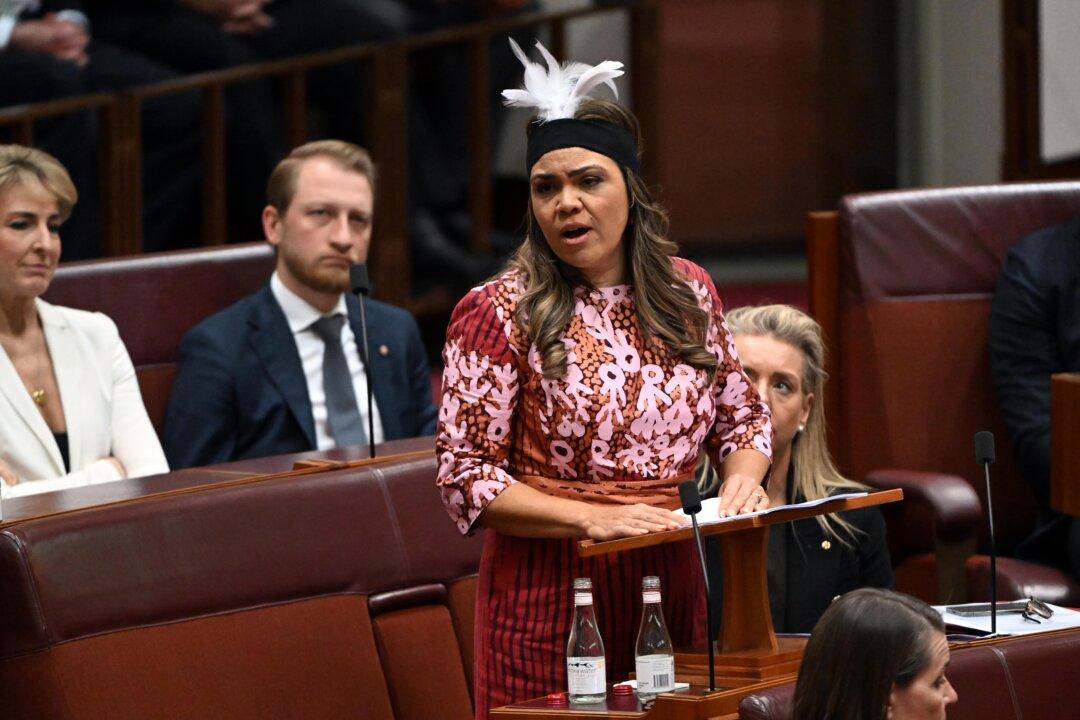An Indigenous senator has called for an end to the “pointless virtue signaling” that she says does nothing to improve the lives of Indigenous Australians.
In her maiden speech on July 28, newly-elected Northern Territory Senator Jacinta Price of the Country Liberal Party described Labor’s vow to enshrine a Voice to Parliament as a “virtuous act of symbolic gesture,” questioning whether it will deliver practical outcomes and unite, or “drive a wedge further” between Aboriginal and non-Aboriginal Australians.




